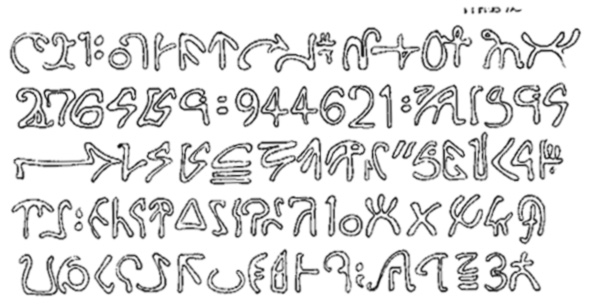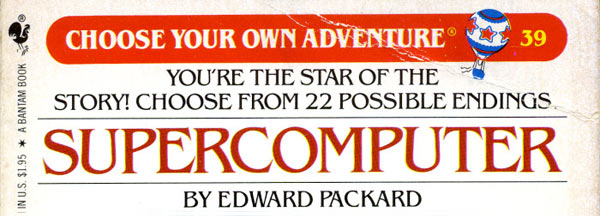 I forgot to open up the doors to the Game Design Studio, but young rowdies are already cramming in there, helping each other, so who am I to stop them? If you’ve got something to submit, read the How to Critique post, and join the rest of the class!
I forgot to open up the doors to the Game Design Studio, but young rowdies are already cramming in there, helping each other, so who am I to stop them? If you’ve got something to submit, read the How to Critique post, and join the rest of the class!
Category: game design
Kodrek, A Game of the Kotaht Archipelago

During last night’s game of Human Contact, there was a scene in a rough ‘n’ tumble bar where there was a gambling game going on between a couple of background characters in the Kotaht Archipelago. There was some hustling going on, so we wound up describing the game a little bit. Vincent wanted there to be stuff you hid under your hand. I wanted there to be a board where you made your commitments based on your hidden hand.
After the game ended for the night (Rob had to go home), Vincent and I talked it out a bit. We came up with Kodrek. The people of the Kotaht have a clan structure and they fight over stuff all the time in a fairly ritualized, low-casualty, high benefit form of spacecraft warfare. This game is to their warfare the way Chess is to ours: grossly abstracted to the point of being a poor simulation, but much more fun, really.
There are a number of local variations to the game, of course, but these things remain constant:
- It is played on a triangular grid
- Each player has two pieces: a Craft and a Speaker. These represent spacecraft and the Speakers on board who have access and the mathematical skill to plot a course. The big piece is the Craft. The little one is the Speaker.
- It’s a gambling game. Everyone antes the same amount into the pot at the beginning of the game, then takes their money back out turn by turn.
- The object of the game is to do one of the following:
- Fling another ship off the board on your turn, in which case you win the pot. Some variants have the pot split between the remaining players.
- Impact another craft on your turn (some variants say you must end a turn on top of another craft, some say you end a turn within one “point” of another craft, some say that you merely cross paths in a turn) which gets you money from the target immediately. If the target doesn’t have enough, you take the balance from the pot.
- Get off the board on your turn, in which case the game starts anew. Everyone pays an equal amount to get the pot up to full strength.
- You have a number of coins, (5 to 8, determined by the local variation, which also determines the size of the board). You turn coins Heads up to draw ships closer to you and Tails up to move your ship. You cover the coins with your hand and reveal them, then make your moves based on what you see revealed in others’ hands.
- You play a bunch of games in a row. In some places, you play a set number of games, and in some, you quit any time, dividing the pot three ways. If anyone leaves in the middle of a game, the remaining players split the pot in half. If there’s a remainder, it goes to the barmaid.
We’re gonna sketch up this game and get the numbers ironed out. Then we’ll do something or other with it if it’s as fun as we think it is.
Science Fiction Language

Over at io9, there’s an article about languages in science fiction, using as an example how much ours has changed since Shakespeare’s time. It’s neat, and timely, as I’m working on the language section of Shock:Human Contact next. If I do another Preview Edition, it’ll be about language and war.
I’m also drawing on The Language Construction Kit, an indie publication by Mark Rosenfelder. The website is good, but the book is more comprehensive. It really twiddles my linguistic fun center and I’m looking forward to reading the book really thoroughly when I’m done laying out Human Contact. It covers syntax (how words are assembled with each other), lexicon (words and what they mean), morphology (how spoken words are formed), and alphabet construction. I’m also wrestling with the nonfiction Writing Systems of the World and the (comically dense) World’s Major Languages.
If you’ve played Human Contact, you know the placeholder rule: you come up with a handful of syllables, then make names for people and places out of them, adding to the syllabary as needed. The primary function, though, is not just to make proper nouns (and certainly not to replace words we already have with alienish ones), but make words that really represent the way a people thinks. When a society has a concept that we, as players, have a word for, we use that word.
In our game right now, there’s a clan structure in the colony. Clans have made up names (Jun and Bri, for instance, which are added to one’s name, and changed when one changes clan, which happens rather a lot), but the word we use for clans is “clans”. On the other hand, those who serve in a clan military are by definition men, whether or not they’re male. It is scandalously impolite to point out that a marine or spacecraft crewman is female. But one’s biological mother might very well be in the military. The society can’t abide homosexuality, though, so they have a word for one’s female father: drokun. It sounds close enough to the word for “father”, drokung, that you can get the idea across without having to be explicit about it. Everyone can make believe that they heard “drokung” when you said “drokun”, but you’ve conveyed the requisite information. Likewise, I’ve got some stuff about the Academic language, Kepho-Rn, in the wiki, covering a few useful Academic concepts and their pronunciations.
My intention is to have a system that floats at a LeGuin level of language construction, where there are words or phrases to describe particular culturally unique phenomena. I also want to give optional rules for broad language construction for those who, like me, get excited about the linguistic-anthropological aspects of the game.
Academy Law

There are several parts of Academy law that will be broadly applicable to the interstellar expeditions that will be the core of play in Human Contact. I’m interested to see how these are interpreted (and ignored) in the course of play — after all, it’ll be years, or maybe decades (or maybe never!) before contact is made with the rest of the Academy again.
Those things listed as crimes are subject to investigation and are dealt with by subjecting the perpetrator to psychological treatment.
For legal purposes, a “meme” is “a unit of information expressed through symbols”, e.g. writing, speech, body language, or pictures. It is to distinguish direct manipulation of another nervous system without passing through the ethical, cognitive, and self-aware aspects of an individual’s mind, thereby removing their choice in the matter.
Note that Academics keep a record of their experiences. When on trial, specific parts of that record can be subpoenaed, but there is no law preventing one from deleting parts of the record. An accused individual is assumed innocent unless proven guilty. However, even a not-guilty result in a trial can damage one’s reputation.
- Professional ethics
- All Academics are expected to keep an objective mindset in their scientific careers with regard to their fellow explorers.
- Preferential or detrimental treatment of individuals (and particularly their work) according to one’s relationship, rather than the value of the work, is a crime subject to censure (the reduction of one’s formal reputation, including the likelihood of publishing again
- All Academics are expected to keep an objective mindset in their scientific careers with regard to their fellow explorers.
- Hominin rights
- Torture is a crime. This includes rape and coercion.
- Killing another person is legal (but subject to investigation) in the following circumstances, and illegal in all others:
- Defense of an individual from torture or murder
- At that person’s memetically expressed request
- Deprivation of an available necessity (water, food, air, choice, medicine) is a crime.
- Prevention of the dissemination of memes (i.e. censorship) of an individual’s voice is a crime.
- Directly affecting the nervous system of another (that is, outside of memetic modes, such as by drugging or tampering with their network wetware) without their consent is a crime
- Interactions with colonies
- If the colony is deemed dangerous by current standards for contact by a starship crew, a low-impact envoy mission must go first, with the starship taking a stealth route.
- Envoys must make every effort to preserve the nature of the colony for study
- Envoys must make the colony ready for the approaching starship in a way that will:
- reduce the risk to the starship
- reduce the risk to the colony
- enhance the understanding of the society to the Academy at large
- Interactions with other hominins are judged by the same standards as interactions within the Academy.
- If the colony is deemed dangerous by current standards for contact by a starship crew, a low-impact envoy mission must go first, with the starship taking a stealth route.
Things that are legal, but differ from many of our laws:
- Any consensual activity between individuals. Consent must be transferred memetically.
- Recreational drug use
- Suicide (though depression is treated medically)
- Any harm, experimentation, and modification of one’s self
- Abortion (very rarely applied within the Academy, since conception is consciously controlled)
I’d love to hear some opinions on these matters. Some of these elements directly contradict each other, as they represent different schools of thought in Academic culture, such as the rules for envoy missions as regarding colonial culture.
Episode 11: THE END OF THE WORLD!

40:30 long & 37.1 MB big
In this episode, Robert Bohl (designer of Misspent Youth) and Joshua A. C. Newman (designer of shock: social science fiction) end it all. Just in time for your Dreamation 2010 drive/flight!
– You can’t cut a piece off something living unless it wants you to, like one of those happy cow-like aliens from Resturant at the End of the Universe or a German suicide
– The TV show Dollhouse by J.J. Abrams
– Rob’s a bad designer and Joshua doesn’t like people
– Game Chef
– Shock: Human Contact by Joshua, and In a Wicked Age…. and Apocalypse World by Vincent Baker of Lumpley Games
– Meguey Baker of Night Sky Games
– Behavior-based questioning in interviews, and how it relates to game design
– John Wick and Ed Healy also are doing a project like Oo!
– AXE COP
– Another project: Ludic Jibber Jabber (no link yet)
– The Podge Cast shows up on iTunes when you search for Oo!
– Our negative review on iTunes
– Our requisite Radio Lab reference
– Sons of Kryos, Science Times, Brilliant Gameologists
– HOW TO FAIL!!!!!
– An NPR story referencing public administration and dead horses
– Kevin Smith’s The Mountain Witch
You can subscribe to the show (if you still want to) by plugging the RSS feed URL into your preferred podcatcher. You can also use the one-click iTunes button thingie:
The intro music is “Gotta Whizz” by Boris the Sprinkler, from the album Mega Anal. The outgoing music is a live version of “The End of the Tour” by They Might Be Giants from the album John Henry.
Human Contact

Human Contact is a version of the Shock: system, focused for a far-future, spacefaring setting. Its science is as hard as I can make it while still having fairy dust things like “interstellar travel” work, while at its core, the setting is about culture clash and the moral challenges of being an explorer and being explored.
There’s an interesting tweak to the system that has to do with interpersonal relationships, and I’m curious to see how it works. It’s untested but in theory doesn’t break anything. It should mostly tell you who should be in future episodes of the game, a bit like the Owe List in In a Wicked Age, but it also gives a little oomph to interpersonal challenges that I often find lacking in games of Shock:
I’m running it a couple of times at Dreamation. Sign up if you want to be a researcher on a starship! I promise the locals will be friendly and grateful for the civilization you’ll bring*.
I’ll have a handful of copies of the preview edition of the game and its alternate rules at the con for players at the table. Sign up! Shock: always overbooks (usually by a dozen or so people!), and I won’t be able to run multiple tables at once this year because of this experiment.
*Promises will not be kept.
Because you know who’s going to be playing the locals: You are. And I know how you are.
Choose Your Adventure! [Oo! Let’s Make a Game!]
51:04 long & 49 MB big
In this episode, Robert Bohl (designer of Misspent Youth) and Joshua A. C. Newman (designer of shock: social science fiction) discuss major changes to the game, spend a lot of time with feedback, and discuss how Jewish someone has to be in England.
We took some during-the-show notes. If you have Google Wave you might be able to take a look at the Wave we created while recording. For those of you without, you can check out the Google Docs transcription
– The Weird Jews Livejournal group that Joshua joined
– The Tenth Amendment to the US Constitution
– The Alas, A Blog entry about the New York Times piece on England and Jewishness
– Kat & Michael Miller’s Serial Homicide Unit
– The Starship Troopers and Robocop films
– Feedback from Doc Holaday, Luke Crane (sorta), Vincent Baker, Jj
– cat and man!
– We know who the game will always be about now!
– Larry Ellison
– Rutgers and Yale Universities
– Blackwater Worldwide
– Postmodernism
– On Mighty Thews, by Simon Carryer
– Frank Frazetta
– The Draconis Montreal convention
You can subscribe to the show by plugging the RSS feed URL into your preferred podcatcher. You can also use the one-click iTunes button thingie:
The intro music is “Gotta Whizz” by Boris the Sprinkler, from the album Mega Anal. The outgoing music is “Taffy Lewis’ Night Club” by Vangelis.
Oo! Let’s Make a Game! Episode 9: Secret Powerz!
57:39 long & 52.8 MB big
In this episode, Robert Bohl (designer of Misspent Youth) and Joshua A. C. Newman (designer of shock: social science fiction) discuss the abilities of the hunter-fog-cloud thing, talk a bit more about the tech web, then get into brainstorming some of the possible powers that the different characters in the game have.
Notes taken by Joshua and I before and during the episode, with lots of detail on what we came up with.
– Joshua tells a story about badasses and kukris
– Listener feedback from Renato Raimonda, Dave Michalak, and Noah Trammell (02:54 – 10:00)
– Archetype / Dramatic role as a class / race combination
– Vincent Baker’s Apocalypse World
– Ibrahim Dahlstrom-Hakki’s (aka “Slash”) board game, Salah Ad-Din: Rise of a Leader
– We tried to use Google Wave, and there’s a public Wave to look at from our planning session (you need a Wave account)
– The James Herbert novel The Fog, which Joshua conflates with the Stephen King novella, The Mist
– The German boardgame Keep Cool (you may be able to buy this if you speak German), and Vincent Baker’s Mechaton
– The Steven Spielberg sci-fi film Minority Report
– The limbic system (for those of you perplexed by Joshua’s “limbically”)
– The unlinkable but cool Chris Moore game, Psi Run (it was an Ashcan Front game
– Return of singularitarianism
– Return of the tech web!
– Brennan Taylor’s Mortal Coil
– DARPANET
Listener homeworks (2 of them):
1) Give us a name for the cloudkill
2) Give us a name for the little quanta of information the cloudkill gets on you
You can subscribe to the show by plugging the RSS feed URL into your preferred podcatcher. You can also use the one-click iTunes button thingie:
The intro music is “Gotta Whizz” by Boris the Sprinkler, from the album Mega Anal. The outgoing music is “Games Without Frontiers” by Peter Gabriel.
[Oo! Let’s Make a Game!] Episode 8: Building People!
54:46 long & 50.2 MB big
In this episode, Robert Bohl (designer of Misspent Youth) and Joshua A. C. Newman (designer of shock: social science fiction) finish developing the character-based situation for the game they’re designing — before your very ears! — then move on to discussing some ways that characters can be pushed to change away from baseline humanity
Rob’s during-the-show notes, the document containing the complete write-up of the relationship map, and Joshua’s ideas on the cloudkill technology.
– Rob does a staged reading of the lyrics to “Prevenge” by They Might Be Giants
– We reflect on how much podcasting is like The King of Comedy
– Obligatory references to Vincent Baker, Radio Lab, and Paul Beakley (we also talk about Ben Lehman)
– COINTELPRO
– The film Jarhead
– The Wire, Generation Kill, and Battlestar Galactica
– John Dillinger
– Toxoplasmosis, Brilliant Gameologists podcast, and Peeps by Scott Westerfeld
– Hampshire College, the college Joshua graduated from
– Crank, which has a sub-standard sequel
– Mortal Coil
– My Life with Master
– Cloudkill
– A Scanner Darkly
– JiffyCon
– There are mysterious goings-on on the Facebook page for shock:
You can subscribe to the show by plugging the RSS feed URL into your preferred podcatcher. You can also use the one-click iTunes button thingie:
The intro music is “Gotta Whizz” by Boris the Sprinkler, from the album Mega Anal. The outgoing music is “Prevenge” by They Might Be Giants from the album The Spine.
Oo! Let’s Make a Game! Episode 7: Life During Wartime
58:34 long & 56.2 MB big
In this episode, Robert Bohl (designer of Misspent Youth) and Joshua A. C. Newman (designer of shock: social science fiction) try out a new way of designing and recording. The show will be going biweekly and Joshua & Rob are going to start doing some design before recording, then discuss it. A great deal of headway is made making up the starting characters and mapping out some of their relationships.
Joshua & Rob’s pre-show work and formal/structured notes written during the episode.
– Joshua & Rob discuss fucking robots and the uncanny valley
– Jenn from Trapcast is happy to “see” us back
– The setup of the protagonists in a pentagram
– Each iteration of the game will have one of the five characters as protagonist
– Matt Wilson’s Primetime Adventures has rules for saying who’s the protagonist on a per-episode basis, and shock: does it on a per-scene basis; Rob presumes that The Buffy the Vampire Slayer Role-playing Game has something to handle a main protagonist with back-ups
– Seth Ben Ezra’s Dirty Secrets also has one main protagonist
– Vincent Baker‘s game Synthia
– Emily Care Boss has a game in playtest that adapts Eero Tuovinen’s Zombie Cinema (there’s a Story Games thread post that discusses it very briefly
– Stealing the qualitative fictional rule-setting from Brennan Taylor’s Mortal Coil
– Joshua is reading Not of Woman Born on recommendation from Meguey Baker of Night Sky Games
– Joshua and Rob argue over whether police are just another gang
– A discussion including the film L.A. Confidential and the TV show The Wire
– I spoil the 1991 remake of Cape Fear to make a point
You can subscribe to the show by plugging the RSS feed URL into your preferred podcatcher. You can also use the one-click iTunes button thingie:
The intro music is “Gotta Whizz” by Boris the Sprinkler, from the album Mega Anal. The outgoing music is “Life During Wartime” by The Talking Heads.
Incidentally, you can find more information about the header image for the blog post at this article about ethnic cosmetic surgery.




